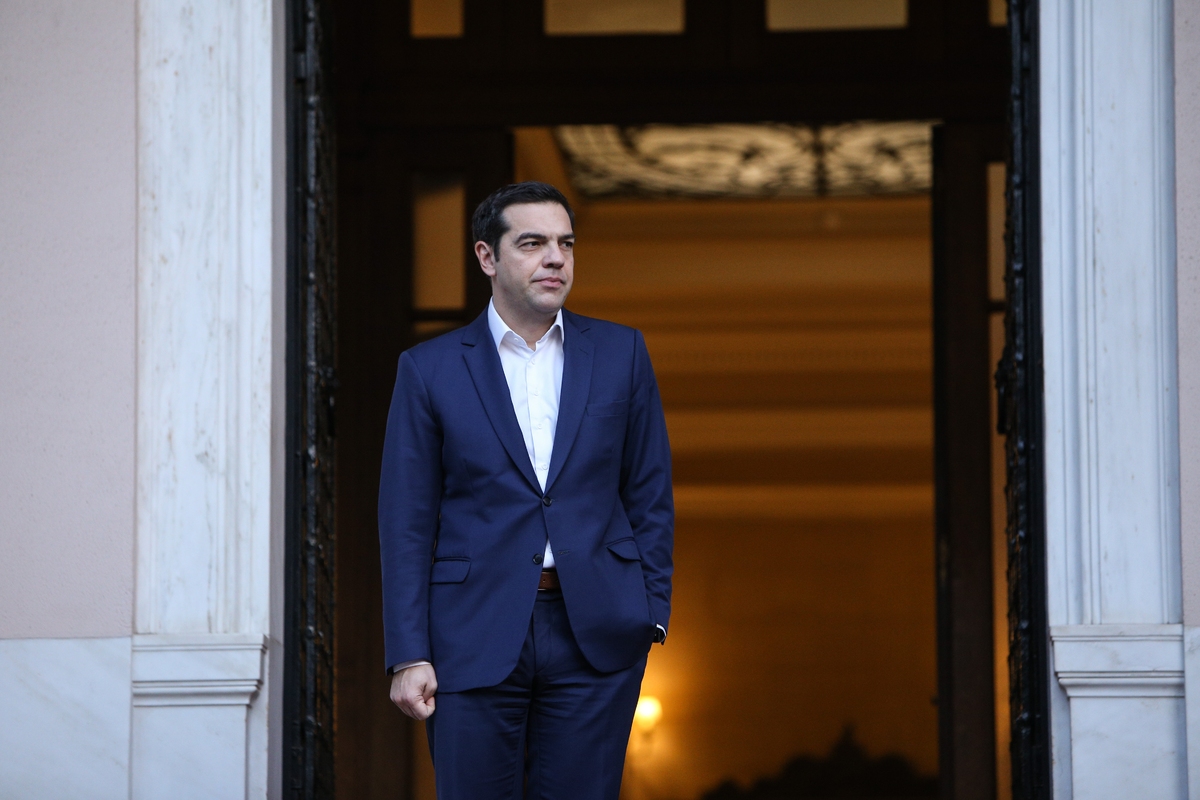By all appearances, this will be a politically sizzling summer, as developments in the government and opposition parties will be dominated by a number of hot button issues.
The recent deterioration of Greece-Russia relations demonstrated that nothing can be taken as given, and that there will be a host of foreign policy and domestic issues to address, on five major fronts, before Greece exits its bailout programme on 21 June.
Relations with Moscow
The first front is that with Russia. The expulsion of Russian diplomats from Greece, Moscow’s response, and the dispute over who invited Russian Foreign Minister Sergei Lavrov to Athens were at the top of the agenda yesterday, at a lengthy meeting between PM Alexis Tsipras and Foreign Minister Nikos Kotzias.
Athens is trying as best it can to downplay the incident and tone down the rhetoric, after the Greek foreign ministry’s exceptionally sharp response to the Russian foreign ministry’s statements.
Yet no one can preclude a new incident with Russia if there are revelations that demonstrate a direct intervention of Moscow in Greek national issues, such as the FYROM naming agreement, or if Russia responds to the expulsion of its diplomats with the expulsion of Greek diplomats, or worse.
Athens is keenly aware that Russian President Vladimir Putin and Turkish President Recep Tayyip Erdogan have come closer, and that a rupture with Moscow will have not only economic, but also diplomatic repercussions.
Jailed Greek officers
The second front is that of the two Greek army officers who were captured and imprisoned in Edirne, Turkey. They have been imprisoned for nearly 150 days in a maximum security prison. Athens now believes that Erdogan may want to drag out the issue and keep Angelos Mitretodis and Dimitris Kouklatzis imprisoned, possibly for over a year.
The PM’s only means of response is to continue to keep the issue alive and to seek to exert pressure through international organisations or powerful allies.
Economic challenges
The third front is that that of the economy. The intervention of the IMF to block the revival of collective bargaining contracts and to demand new, post-memorandum labour reforms indicates that celebrations of the bailout exit will not be reflected in everyday reality.
The German move to block the government’s decision to retain a VAT tax discount on five Aegean islands demonstrates the continuing tight external control of the Greek economy.
Creditors are attempting to clip the government’s wings even as it prepares to announce a substantial package of handouts. Sources in Brussels indicate that there will be warnings in the coming period and pressure to fully implement measures that have been agreed upon.
FYROM issue
A conference held yesterday at the foreign ministry highlighted the disagreements over the Greece-FYROM accord, and Kotzias’ efforts to persuade citizens that it is the best possible mutual agreement that could be reached. In a display of the internecine clashes over the issue in the government, Independent Greeks MP Kostas Zouraris staunchly criticised the deal. He accused the government of “mutilating our name, which is part of our identity”.
Developments in Skopje are not reassuring either, as a recent poll show that a majority of FYROM citizens oppose the bilateral accord. As a result, there have been rampant rumours that PM Zoran Zaev may call an election, possibly at the same time as the referendum on the agreement.
Domestic politics
The fifth front involves how the PM will handle the domestic political scene. Will he proceed with a cabinet reshuffle, and if so with which appointments? Will he announce a hefty package of handouts at the Thessaloniki International Trade fair in September? Will he opt for elections this coming autumn, or plan them for 2019?
All these issues and more indicate that this will be anything but a restful summer for the PM and the government.



